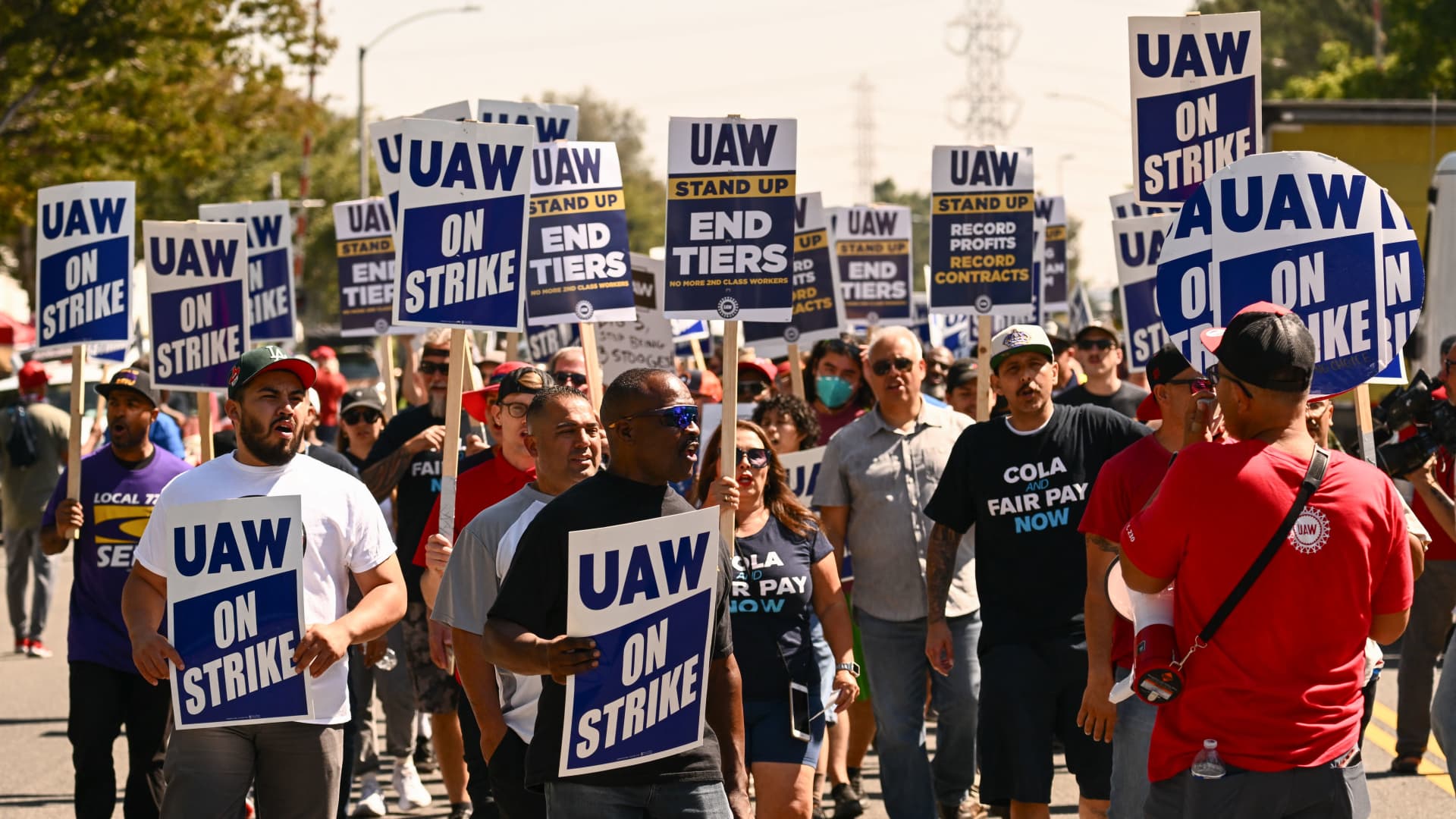DETROIT — The United Auto Workers and General Motors have agreed to a deal that will put an end to collective bargaining talks between the union and Detroit automakers following more than six weeks of targeted U.S. labor strikes, sources told CNBC.
GM is the final Detroit automaker to reach a deal with the union following historically contentious talks. Tens of thousands of workers across the country went on strikes after the sides failed to reach agreements by a Sept. 14 deadline.
Two sources familiar with the GM-UAW talks said negotiations occurred last night and into the early morning to reach an agreement. News of a deal was first reported Monday by Bloomberg.
Spokespeople with the UAW and GM declined to comment Monday.
Ford Motor was the first to reach a tentative agreement with the union, on Wednesday, followed by a deal with Chrysler-parent Stellantis on Saturday.
The four-and-a-half-year tentative agreements must still be ratified by members at each of the automakers. The headline economics of the deals, such as 25% wage increases, were patterned off of Ford’s initial deal.
The raises and benefits cumulatively boost the top wage to more than $40 an hour, including an increase of 68% for starting wages to over $28 an hour, the union said of Ford and Stellantis deals.
Those deals also reinstated cost-of-living adjustments, reduced an eight-year path to top wages to three years and allowed the right to strike over plant closures, among other significantly enhanced benefits.
Sources told CNBC the GM deal matches those improvements.
The strikes have collectively cost GM, Ford and Stellantis billions of dollars in lost production. Ford said Thursday that the union’s strike has cost it $1.3 billion and the deal, if ratified by members, would increase labor costs by roughly $850 to $900 per vehicle produced.
GM said Tuesday the strike had cost it about $800 million.
The proposed agreements are record-setting for the union, which was far more confrontational and strategic during the talks than in recent history.
The union initiated negotiations with all three automakers at once, breaking from recent history when UAW leaders would bargain with each automaker individually, select a lead company to focus efforts on and then pattern the remaining deals off a leading tentative agreement.
It’s not immediately clear how much the labor deals will increase labor costs for the companies, which had argued that giving in to all of the union’s demands would affect their competitiveness and even long-term viability.
Deutsche Bank recently estimated the overall cost increase of the agreement at Ford to be $6.2 billion over the term of the agreement; $7.2 billion at GM; and $6.4 billion at Stellantis.
